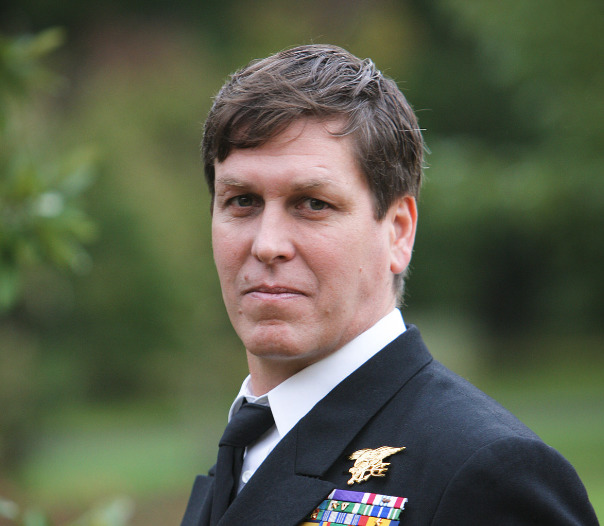Former Navy SEAL Chris Beck renounces transgender identity that ‘destroyed’ his life
Chris Beck, a veteran who became famous for coming out as transgender, has just revolutionized his public image with four words: “I am not transgender.”
In an online interview with commentator…

Chris Beck, a veteran who became famous for coming out as transgender, has just revolutionized his public image with four words: “I am not transgender.”
In an online interview with commentator Robby Starbuck, Beck recalled how his transition began with a single one-hour meeting with a medical provider before being prescribed hormones, which gave him thyroid and other health problems.
Beck initially transitioned in 2013, giving an interview to CNN that made him famous as “Kristin” Beck.
While a Navy SEAL, Beck was awarded a Bronze Star, Purple Heart and two Defense Meritorious Service Medals. He retired in 2011 and began hormone therapy in 2013.
In his interview with Starbuck, Beck talked about the current debate about giving children gender-altering treatments. Specifically, he criticized the irresponsibility of treating children with hormones.
“The hormones they’re using are the same hormones they used to use for medical castration; it was like a chemical castration for pedophiles,” said Beck. “Now they’re giving this to healthy 13-year-olds. Does this seem right?”
He also denounced transgender diagnosis and treatment practices as “feeling-based” and not “evidence-based.” And he says he believes his own mental health issues were exploited by the medical establishment and the media.
Shortly after his retirement, he shared his struggles with a psychologist – an expert in military psychology and PTSD – who said, in Beck’s words, “Oh my God, we could write a book and make millions.”
And they did.
Warrior Princess: A U.S. Navy Seal’s Journey to Coming Out Transgender was released in 2013. A movie, Lady Valor: The Kristin Beck Story, followed in 2014.
The media “love-bombed” Beck, he recalls, but his underlying mental health issues didn’t disappear. Now Beck says his struggles were used as “an excuse for a psychologist to push their agenda.”
Many youths wrestle with their mental health for reasons other than gender dysphoria, such as bullying, and Beck worries that transgenderism will be sold to them as a cure.
“This is a billion-dollar industry, between psychology, between surgery, between hormones and chemicals, between all the follow-up surgeries and everything else,” said Beck. “Thousands of gender clinics are popping up all over our country.
“Doesn’t that make you kind of wonder?” he asks.
Cross-sex treatment is undoubtedly expensive. Hormone therapy costs between $1,500 and $2,400 a year. “Top” surgery – a euphemism for removing or adding breasts – costs between $8,000 to $10,000, while bottom surgery – the term for surgically modifying one’s genitals to resemble that of the opposite sex – is around $25,000.
The result is a lucrative industry. The current U.S. transgender population age 13 or older is estimated to be 1.6 million. If every transgender person had surgery, the medical establishment could rake in a staggering $56 billion.
Looking back on 2013, when he transitioned, Beck regretted parroting the propaganda of the medical establishment.
“I can’t forgive myself because of all those videos and because of things I’ve said and because of what I was repeating,” he said. “It wasn’t me.
“I want to make sure the whole world knows everything you see on CNN with my face, do not even believe a word of it.”
For Beck, transgenderism isn’t an altruistic movement; it’s a business – one that’s selling happiness under the guise of hormones, and which makes $35,000 when people with mental health issues are convinced to undergo mutilating surgery.
Beck was deployed 13 times, having fought in Bosnia, Afghanistan, Iraq, Africa and Pakistan. He spent 20 years serving in one of the world’s most elite military forces. But spending 10 years as transgender was still “horrible,” he says.
“It destroyed my life. I destroyed my life. I’m not a victim, I did it to myself. But I had some help, darn it.”



